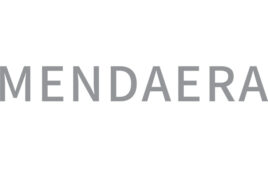Philips designed the platform to allow clinicians to easily perform a variety of routine and complex procedures. Meant for use in interventional labs, Azurion is but another example of medical device products with a strong value-based sales pitch around controlling costs and improving care standards.
“For over 30 years, we’ve pioneered minimally invasive treatments that help our patients get back to their daily lives,” said Dr. Barry T. Katzen, founder and chief medical executive of the Miami Cardiac and Vascular Institute, Baptist Health South Florida.
“The imaging environment is critical to perform such procedures efficiently and effectively. As an interventionalist, we want to be in the cockpit, similar to a pilot in an airplane, where we have control of everything we need and have all the relevant functions at our fingertips. Philips’ next generation image-guided therapy platform just takes it to a whole other level and allows interventionalists to accomplish the procedures quicker and more efficiently, which benefits the patient,’ Katzen said in a Philips news release.
Philips’s new operating system ConnectOS powers Azurion with its easy-to-use user interface and real-time information. It is designed to be used in interventional labs.
The Azurion platform has over 1,000 new components. An enhanced flat-panel detector, the ConnectOS and other features work in tandem to produce high image quality at an ultra-low X-ray dosage, with image processing on multiple work spots in the interventional lab. The featured procedure cards on the Azurion platform also let clinicians pre-program tasks and user preferences to reduce errors during preparation and procedure times.
With a full range of configurations, the Azurion platform can be configured for high volume routine and advanced procedures. Teams of clinicians are also able to perform multiple and different tasks simultaneously within the lab without compromising the quality of care, according to Philips.
The Azurion adds to a variety of different systems that Philps offers to help with surgeries and other medical applications, including the VesselNavigator for vascular surgery, the EchoNavigator for interventional cardiology, the EmboGuide for interventional oncology and the AneurysmFlow for interventional neuroradiology.
“As a leader in image-guided therapy, we have been driving continuous innovation to address rising patient volumes and increased procedure complexity,” said Bert van Meurs, business leader of Image Guided Therapy at Philips.
“Hundreds of Philips developers, engineers and designers and dozens of our clinical partners across the world have collaborated to completely redesign the heart of our portfolio. With the launch of our new Azurion platform, which was designed to optimize system integration and lab performance, we can deliver new turnkey solutions that support our customers in maintaining high standards of quality and patient care at predictable costs,” van Meurs said.
[Want to stay more on top of MDO content? Subscribe to our weekly e-newsletter.]





